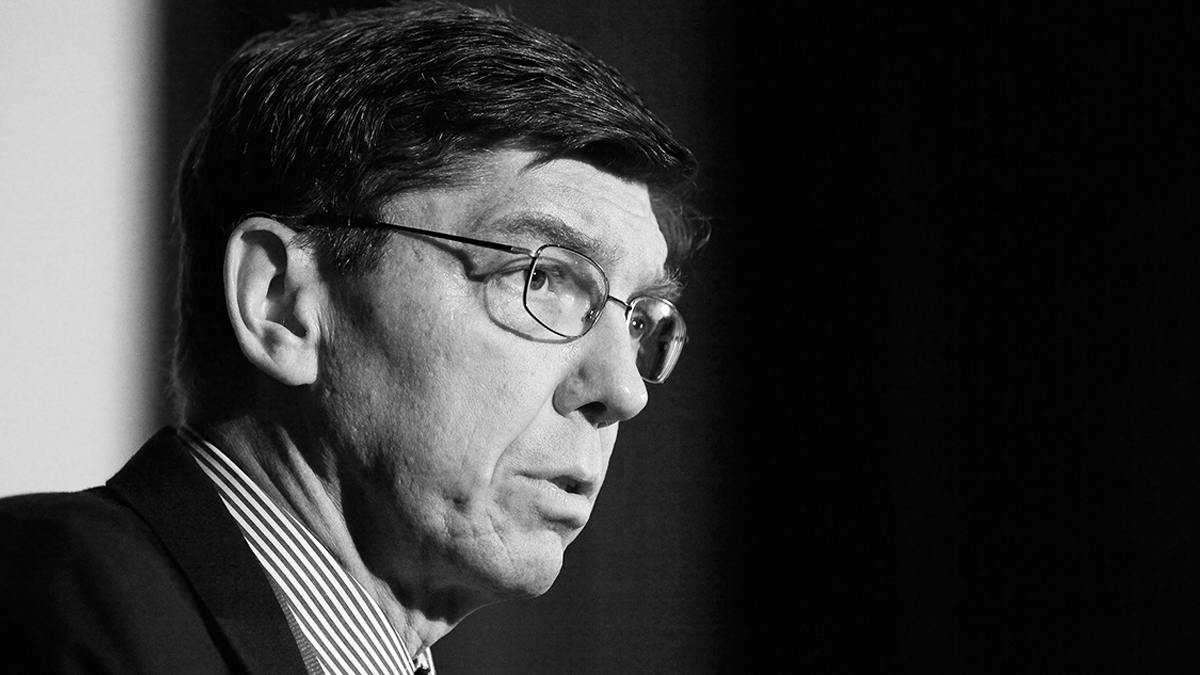
Christensen’s contribution extended beyond business to embrace societal problems at large. His last book, The Prosperity Paradox dealt with how innovation can fight global poverty.
To honor the life and work of this great thinker, we invited members of the ISM community to share how Christensen’s work influenced their careers and thinking about business.
Ivo Pezzuto, Core Faculty
I have always been excited about entrepreneurship, strategy, innovation, and disruptive new business models and ideas. So, when at the end of the summer of 2015 I was invited by Professor Matthew Andrews to teach my first disruptive innovation course at ISM, I jumped at the opportunity to share my passion and experience with the ISM students. I thought it would be a perfect match.
I was given the amazing opportunity to teach a course on my preferred topic. I was excited to share the concept of disruptive innovation with a brilliant class of forward-thinking and internationally-minded master-degree and doctoral degree students. ISM's student population is really the best group of people for teaching these courses because they have great business experiences in multiple markets, a unique global mindset, a strong entrepreneurial spirit, and a great sense of community and appreciation for diversity.
Needless to say, Professor Clayton Christensen’s visionary, insightful, and groundbreaking work and theoretical framework on disruptive innovation has always been at the heart of my ISM courses. Professor Clayton Christensen’s business ideas have profoundly changed my life and the lives, mindsets, souls, and career perspectives of countless business students and professionals in the past two decades. For me, Professor Clayton Christensen’s work has been the most influential and inspiring scholarly reading on innovation management, disruptive business models, and business strategy for the "Greater Good" (i.e. disruptive innovations that focus on societal good). Some of my most recent publications in academic journals have been largely inspired by Christensen’s work and visionary acumen.
Four years after my first course on disruptive innovation at ISM and a few days after completing my latest edition of the course in January 2020, I felt overwhelmed when I learned about Professor Christensen’s passing. The world has lost one of the most brilliant minds of our century, a giant of business, faith and wisdom, and a great man.
Jack Hampton, Core Faculty
It is fitting, indeed, that Dean Baena invited members of the ISM community to share thoughts on the work of Dr. Clay Christensen. His research on disruptive innovation is supported by the success of Professor Jack Forget when he created the executive DBA program to serve the educational needs of citizens from around the world. Standing almost alone 20 years ago, ISM has been joined by more than 65 more-recent executive doctoral programs, including 15 from schools that, like ISM, are members of the global Executive DBA Council. ISM started a disruptive innovation in the footsteps of Dr. Christensen. We remember him fondly.
Leigh Soutter, PhD Candidate
Christensen’s writings often come up when we talk about new technologies in Silicon Valley (California), but his last book, The Prosperity Paradox, tells a larger and more compelling story for me and my PhD research at ISM. After attending ISM in South Africa in 2018, I began to think deeply about the possibilities and complexities of Africa. With its many countries, cultures, resources, gaps, and opportunities, how could top-down thinking alone optimize outcomes there? In The Prosperity Paradox, Christensen (and his co-authors) contend prosperity cannot be legislated into place or arise from programs to alleviate poverty indicators. Instead, the authors convincingly assert that market-creating innovations are what spark prosperity; i.e., the momentum towards mass adoption is what actually “pulls” infrastructures and better governance into place (instead of the other way around). I see this as an empowering and actionable view that not only resonates with my own entrepreneurial mindset and experience with ISM, but also offers new insights for investments and opportunities for academics, emerging markets, and beyond.
Tomas Linfors, PhD Candidate
Market-creating innovations, efficiency innovations, and sustaining innovations are probably the most known concepts introduced by Dr. Christensen. For me, as a leader of a holding company and chairman of three advisory boards, one thing he said often comes to mind. Christensen said, “A strategy is only temporarily correct.” In my view, that means that current needs are handled daily while we put effort into future needs, so we can get better. May he rest in peace.
Helen Emore, PhD Candidate
What I learned from Professor Christensen is the concept of disruptive innovation. It was instructive to note that it can occur in practice, channels, or financing. The key learning is that you can be disrupted from any angle. Therefore, as a business, you have to constantly innovate your processes and key aspects of the business model. He advocated constant re-invention. Christensen's ideas have become very important in an era where technology is constantly changing the way we do things in our world.






